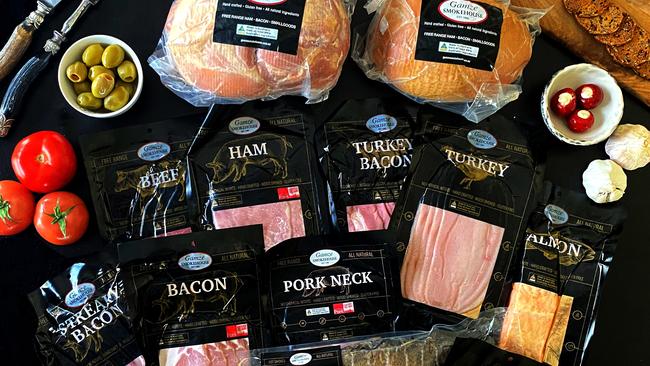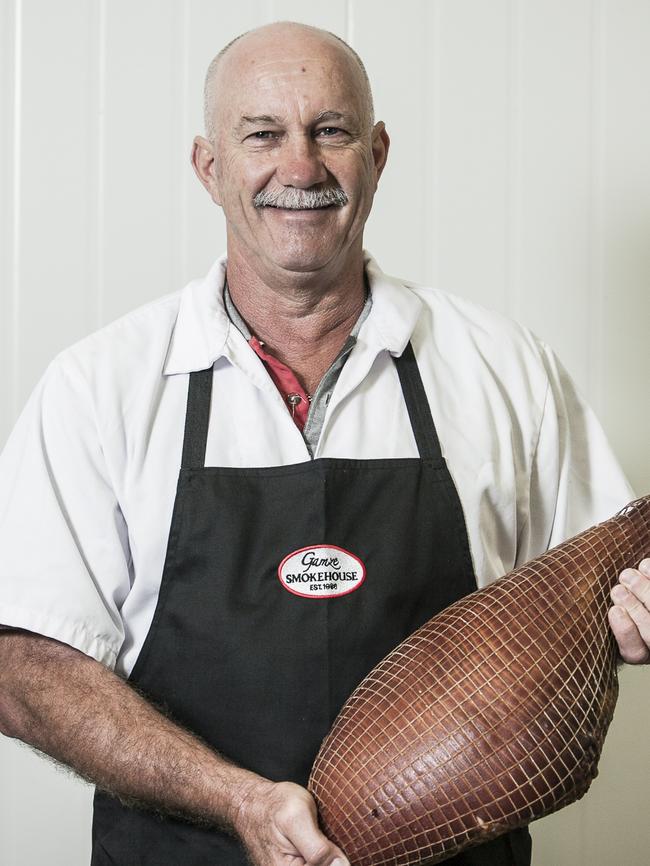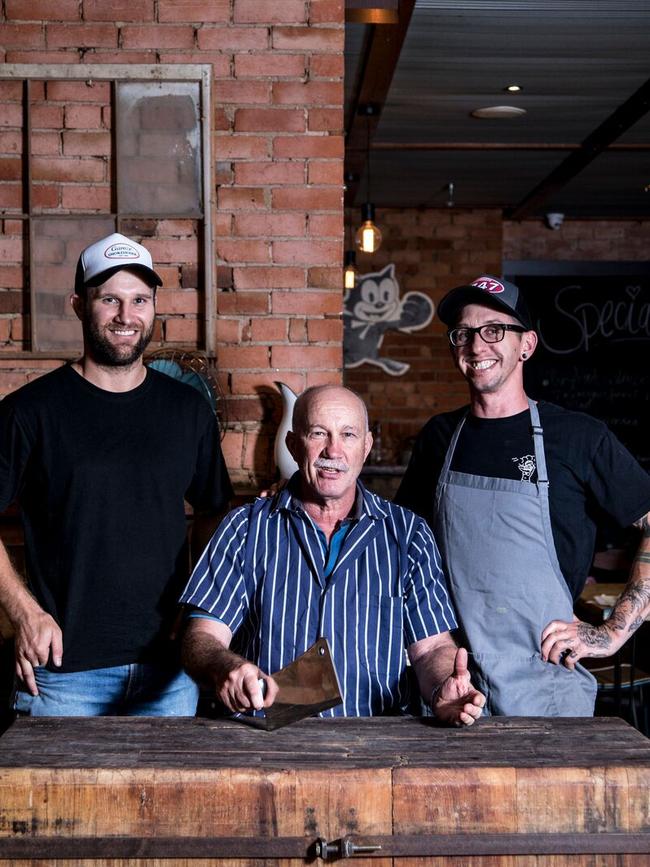Milawa’s Gamze Smokehouse’s Felix & Brendan on smallgoods success
From fresh meat to smallgoods, Felix Gamze’s 50 years as a butcher included launching a new-look business with his sons.

It is 50 years this year since Felix Gamze started his butcher’s apprenticeship as a teenager in Wangaratta.
And after all those years, there are many things he looks back on with pride — including a performance statistic some butchers would be envious of.
“I can still to this day honestly say I have not had a stitch from a butchering incident,” he laughs.
Having started out as a retail butcher, opening his own business in Wangaratta in 1986, over the past decade or so Felix and his sons have shifted their business into artisan smallgoods, free from chemical preservatives and using free-range meat.
Gamze Smokehouse products are now stocked in about 200 retail businesses in Victoria, NSW and Queensland and sold to a further 25 food service businesses such as cafes and restaurants.
There is also the Gamze Smokehouse restaurant and smokehouse door in Milawa.
The roots of this business can be traced back many years for Felix, who migrated to Australia from Slovenia with his family when he was two.
Competition from supermarkets selling meat products prompted him to find “a point of difference” to set his products apart.
“I enjoyed catching a fish and smoking it, and dabbling in making a little bit of bacon for myself — this was just home stuff more than in the shop — then I thought, we might get into this,” he says.
Felix started smoking and selling meats, building those sales in the shop. When customers started inquiring about the origins of his meat, he started stocking free-range meats, then began making his products without “preservatives and chemical additives”.
Sometimes, necessity provided inspiration.
“I had one turkey breast left one Christmas that I hadn’t sold, and I thought what am I going to do with this thing? No one buys turkey after Christmas,” Felix says. “So I brined it and smoked it and started slicing it and selling it over the counter — and we buy a pallet at a time now.
“My turkey grower said to me one day, you are just buying the breasts off me, I need you to buy the thighs as well … we experimented with a few things and along came turkey bacon, which is a full-muscle product, sliced, and if you have any religious issues with eating pork, you can eat turkey.”
Son Brendan says they now sell as much sliced turkey breast as they do ham. “It's a product we’re really proud of and it resonates with our customer base as well.”
When Brendan, whose background was in marketing and finance, moved back to the North East from Melbourne with his young family about a decade ago, he joined the family business.


The smoked smallgoods business continued to grow with sales at farmers’ markets and sales in Melbourne, to the point where it was outgrowing the butcher shop.
A former cheese making facility in Wangaratta proved the ideal home for the expanding operations, and after a period of overlap running both the retail butcher shop and the new manufacturing facility, they sold the shop to focus on the smallgoods business. “We were pretty confident with where the business was going … it was a blind leap of faith a bit as well, but it has all worked out,” Brendan says. “We had a customer base set up that could sustain the build of the business through the manufacturing facility, so we got out of fresh meat altogether and just focused on the smallgoods.”
Their range now includes pork, chicken, beef, turkey, trout and salmon products, which are featured on the Milawa smokehouse restaurant menu.
On average they require 30-35 full Berkshire-Duroc-cross pigs a week, sourced from Limestone Pork near Yea. Bacon is the most popular product, but the Gamzes aim for a balance.
“It’s about using nose to tail for us as well, and respecting the whole animal, so we need to balance out what we do,” Brendan says.
They also use rare-breed free-range turkeys from Deutscher’s in Dadswells Bridge, free-range Victorian chicken bought wholesale, trout farmed near Mansfield, and salmon farmed from Tasmania.
The restaurant and smokehouse in Milawa — “designed to be like a winery cellar door” where existing customers or visitors could go — opened four years ago.
The Gamzes felt the effects of the double-whammy of bushfires and coronavirus lockdowns last year, with not only their own restaurant closing, but also losing business from other cafes and restaurants they supply.
“We were lucky in the sense we had a good mix with food retail,” Brendan says.
“We had a big drop- off in the food service arm of our business, but then we had a good increase in food retail side of things
“It was helping to lessen the blow from not being able to supply any food service customers for an extended period of time.
“You just had to make the most of the opportunities that presented themselves.”
The focus at the moment is growing the business’s reach, with Brendan saying they are hoping to enter the South Australia market, adding they are also working on some salami products.
“At the moment we only do cured and smoked products like ham and bacon, where fermented products like salami and prosciutto is something we’re working on and is just a natural progression for us,” he says.
While Felix, now 65, has stepped back from full-time involvement in the business (but remains involved), Brendan, brother Simon and brother-in-law Jason are all now involved. There are also two butchers — who both did apprenticeships with Felix — and three production hands.
On his honeymoon in Slovenia, Brendan discovered that Felix had unknowingly entered a family trade, as his uncle had also been a butcher.
Brendan has memories of him and his siblings going to work with their Dad on Saturday mornings to spend time with him.
“You would go into work at 6am with him and you’d help make rissoles or crumb schnitzels and do those sort of things just to be with him, because he did work so hard … going to work was a way to see him,” Brendan says.
“It was good because morning tea at a butchers shops always sausages and chops and eggs on a fry pan so that was always a winner for us.”
MORE
WHAT ARGENTINA’S MEAT BAN MEANS FOR AUSTRALIA


